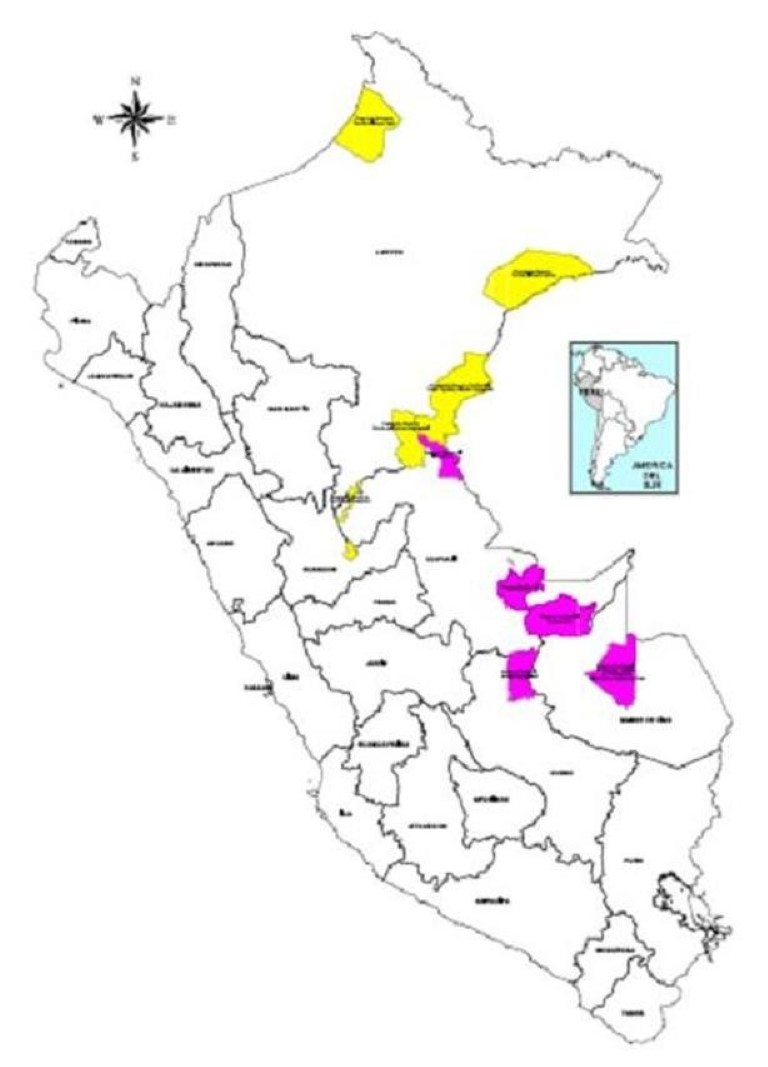New reserves for "uncontacted" people established

Following a history of abuse and exploitation, the PIAVCI have sought refuge in their forests, avoiding contact with mainstream society. AIDESEP — a membership organization of 65 federations representing more than 650,O00 indigenous peoples in Peru — is mindful that outside pressures on PIAVCI lands are increasing and could provoke the extinction of these people, and negatively affect the roughly 7 MHa of tropical rainforests they call home.
In 2013, AIDESEP successfully worked with the Ministry of Culture to create new reserves for PIAVCI, commonly known as "uncontacted" people. Peru has the largest number of "uncontacted" Indigenous Peoples of any country in the world. The Peruvian government previously recognized five territorial reserves for PIAVCI in the Amazon. The original five reserves—2.8 Mha—are shown in pink in the map below, and the new reserves—4.3 Mha of tropical forests—are shown in yellow. The new reserves are Yavarí Mirim, Tapiche Blanco Yaquerana, Sierra del Divisor Occidental, Cacataibo, and Napo Tigre.
With RRI support, AIDESEP provided strong evidence for the presence of uncontacted peoples in areas where oil industry investors have repeatedly refuted their presence, and initially pressured the government to overturn the declaration of these new reserves. AIDESEP’s evidence compelled the government to uphold its decision, and has effectively prevented a rollback of rights.
